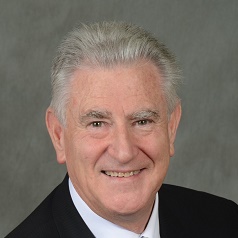-
Get the latest news! Subscribe to the ifa bulletin

Given I have been very public with my views on vertical integration, you’d think I would be celebrating the news that ANZ is getting out of wealth. The celebration would go something along the lines of ‘one less conflicted, bank-owned wealth business to pretend to care’.
Tough I know, but I don’t mince my words.
You see, I have always argued vertically integrated models are inherently conflicted. That if you have the same company manufacturing the product as distributing it, you cannot do what’s best for the consumer. Whichever part of the equation you are working on – product manufacture or product distribution – one will be influenced by the other. It is not pure. Not clear.
It’s crucial that if customers are getting advice from a vertically integrated business, they know it is vertically integrated. But the saving grace of these businesses is that they have been very successful in getting life insurance protection and financial advice into the hands of the consumer, and it is the loss of advice that I lament most over ANZ’s decision.
The vertically integrated model actually facilitates the delivery of very important products and services to consumers and without it, I would say far fewer Australians would be protecting or building their wealth.
As I pause and reflect on my past views on vertical integration, I do wonder if we as an industry have progressed far enough that losing a provider of advice is a worse outcome than ensuring more Australians have the protection and wealth strategies they need to reach their financial goals?
And of course, the answer is yes.
Differences aside, the whole purpose of our industry is to provide a life-changing service to Australian consumers. To give them access to great advice, products that can help deliver their wealth protection and growth goals, and to be there for them and some of the biggest financial decisions they will make in their life.
It is no secret that ANZ’s distribution business, in particular Millenium3, has been on a slippery slope. The rankings over the past year for life insurance sales have told the story, moving from third largest distributor in June 2015 to sixth largest by June this year.
One of the changes I saw as an observer was the change in the organisational culture over this period. Millennium3 was run by two passionate, professional and respected individuals as if it was their own. They even used the expression, ‘institutionally owned, independently run’. When ANZ took control of the day-to-day management however, the culture so carefully built up over years was cast aside for a corporatised vertically integrated model.
This whole sorry saga reinforces to me two things. Firstly, culture counts. Good advice groups have great cultures and do not have the added layer of complexity that vertical integration brings. They are run by people who care, people who are invested in it, and people who aren’t afraid to be themselves, have some fun and have a positive ripple effect across the whole group.
This is certainly how we run Synchron, and I implore any Millenium3 adviser now left scratching their heads, to have a chat with us.
The second message reinforced to me is that it’s ok for different business models to provide advice. It is the adjective ‘advice’ rather than the noun ‘advice’ that matters.
That is, advice as a descriptive word for a service that goes beyond model and delivers real value, as well as full information to consumers so they know any possible limitations on the advice given.
 Don Trapnell is a director of Synchron
Don Trapnell is a director of Synchron
Never miss the stories that impact the industry.